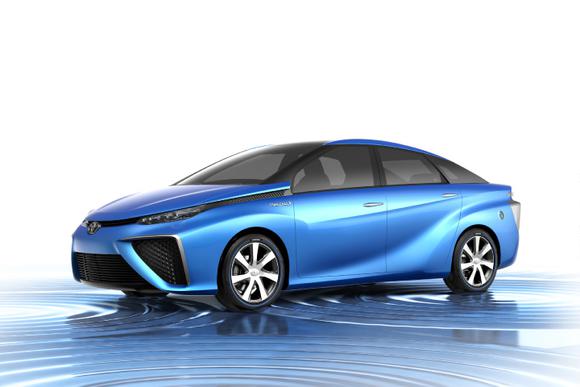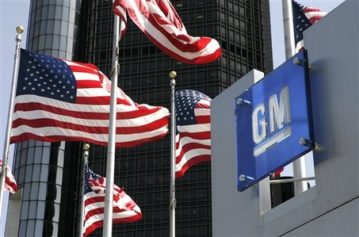Toyota Motor Corp., which is preparing to sell Camry-sized sedans powered by fuel cells next year in the United States, said it will help create a hydrogen-station network to aid the plug-free electric vehicles’ success.
The concept version of Toyota’s fuel-cell sedan due in 2015 was displayed Monday in Las Vegas at the International Consumer Electronics Show, along with a prototype that’s been subjected to road and hot and cold weather testing. California, the main initial market, will have as many as 20 hydrogen fuel stations next year when sales of the unnamed vehicle begin, Toyota said.
Using hydrogen to power vehicles “has been seen by many smart people as a foolish quest,” and faces “significant challenges,” Bob Carter, Toyota’s U.S. senior vice president, said in a statement before the car was shown. “First is building the vehicle at a reasonable price for many people. The second is doing what we can to help kick-start the construction of convenient hydrogen refueling infrastructure.”
Toyota, Hyundai Motor Co. and Honda Motor Co. have announced plans to sell hydrogen cars and crossovers to drivers in California, where state regulators have set strict rules requiring ever greater numbers of “zero-emission” vehicles each year through 2025. Fuel-cell autos are similar to battery-only models such as Nissan Motor Co.’s Leaf hatchback and Tesla Motors Inc.’s Model S sedan in avoiding tailpipe pollution from burning gasoline.
Battery models carry electricity in their lithium-ion battery packs while fuel-cell vehicles make electricity on board in a chemical reaction between hydrogen and oxygen, with only water vapor as a byproduct. While hydrogen vehicles have range comparable to gasoline vehicles and need only a few minutes to refuel — compared with hours for most battery autos — there are few hydrogen pumps currently open to the public.
source: businessweek.com

